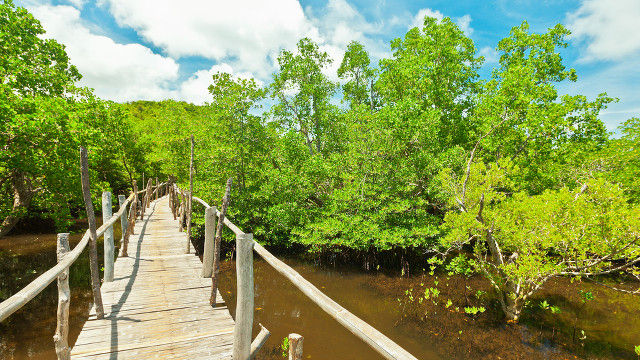SUMMARY
This is AI generated summarization, which may have errors. For context, always refer to the full article.

MANILA, Philippines – The World Bank is providing a grant worth US$700,615 (P30.6 million) for the assessment of the Philippines’ natural wealth, including mangroves and minerals.
The project to receive the funding is the Wealth Accounting and Valuation of Ecosystems (Phil-WAVES). It will measure the amount of minerals, mangroves and other natural riches in the country using an internationally accepted framework for accounting natural resources, the 2012 System of Environmental and Economic Accounting (SEEA).
Knowing what natural wealth the country has will ultimately help ensure sustainable use of the resources, said World Bank Philippines Country Director Motoo Konishi.
“Having sufficient data on natural resources and analyzing this properly is crucial to making decisions that will help the country reach the twin objectives of ending extreme poverty and increasing shared prosperity,” he said.
The accounting will enable the Philippine Statistics Authority (PSA) to determine the value of these key natural resources and their contribution to the country’s gross domestic product.
“We are optimistic that Phil-WAVES will help us better appreciate the interactions between the economy and the environment,” added Konishi.
The grant will fund capacity-building and the generation of data so that the SEEA framework can be fused into the programs of Philippine government agencies.
Four staff will be recruited under the grant to help PSA implement the SEEA framework.
Meanwhile, the lead implementing agency for the larger Phil-WAVES project is the National Economic Development Authority (NEDA).
A country coordinator and assistant will also be recruited under the grant to support NEDA with overall coordination.
Poor Filipinos to benefit
The poor will greatly benefit from the project since they are often the ones most dependent on natural resources for livelihood and sustenance.
“Knowing the total value of natural capital like mangroves and minerals can help policy makers address poverty issues,” Konishi said.
“For instance, lack of valuation of mangroves and their role in protecting the coastlines can lead to conversion to shrimp farms and other uses, with the poor losing their means of living from fish habitat destruction and their coastal communities becoming more vulnerable to extreme weather events like storm surges,” he explained.
Phil-WAVES will focus on mangrove ecosystems. It aims to complete a national account for mangroves in recognition of their role in shielding coastal communities from storm surge and other climate change-related events.
It will also shine the spotlight on the country’s mineral deposits. It may prove a useful tool for resource accounting and cost-benefit analysis vital to the implementation of reforms in the Philippine mining sector.
Projects by the Department of Environment and Natural Resources are also expected to get a helping hand from Phil-WAVES. The project will help complete ecosystem accounts for Southern Palawan and the Laguna Lake basin.
A second World Bank grant amounting to US$800,000 (P35.1 million) will complete the Phil-WAVES project. This fund will be used to support policy analysis based on the data collected by the natural resource accounting. – Rappler.com
Bohol mangroves image from Shutterstock
Add a comment
How does this make you feel?
There are no comments yet. Add your comment to start the conversation.